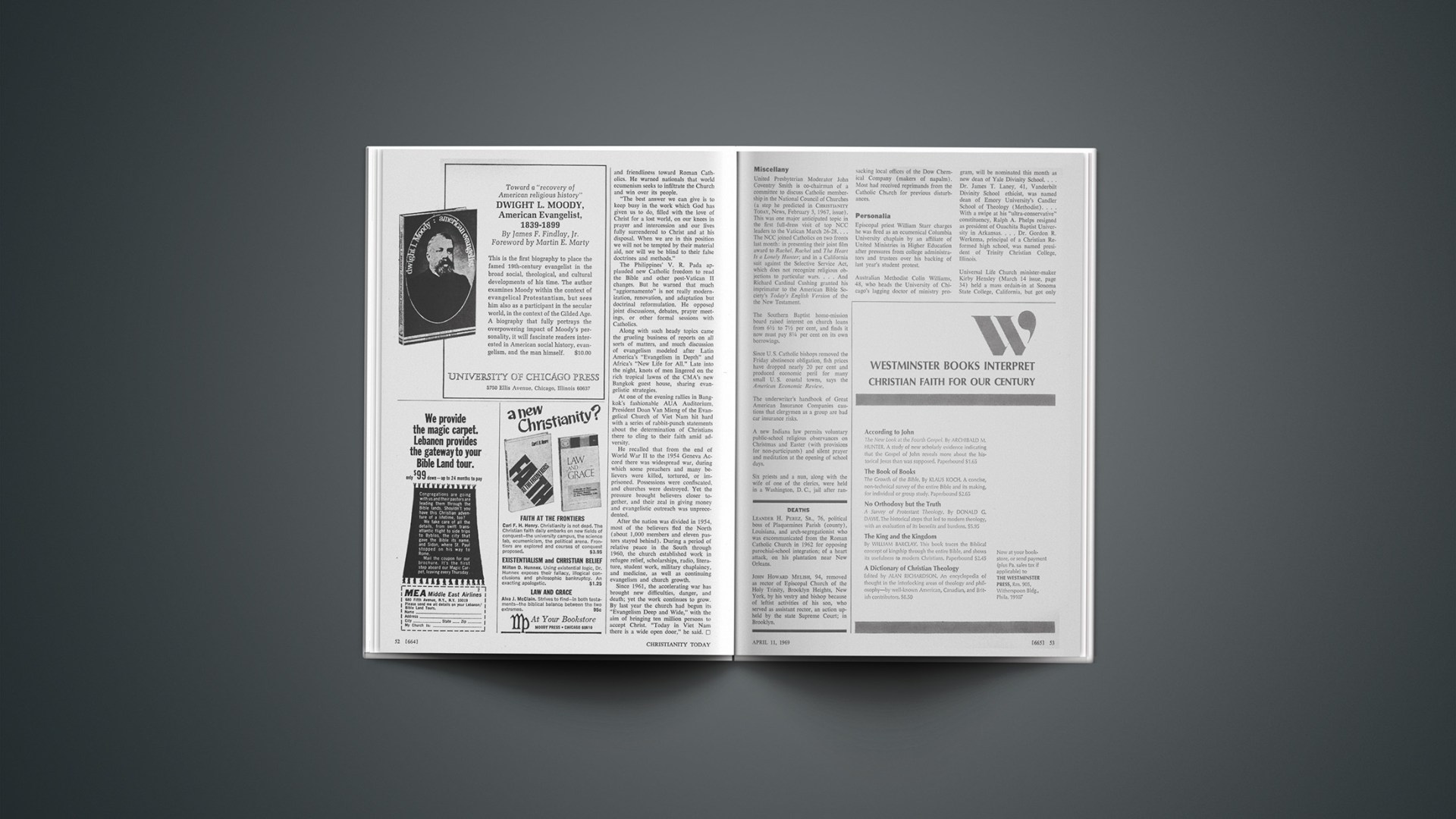Early in 1962, a handful of Reformed Church in America and Southern Presbyterian representatives met in Washington, D.C., to discuss what was increasingly the vogue—church union. Seven years later, Presbyterians approved the merger by the narrowest of margins after an arduous and at times mildly bitter fight. But the victory was in vain. Reformed laymen in the Midwest, zealous of historic tenets and of liberty they have in their denomination, feared the long arm of a more centralized, Presbyterian structure. And in the more doctrinally liberal background, as they saw it, lurked the ominous Consultation on Church Union (COCU). By March 18 they had defeated the merger plan.
The church—which had its origins with Dutch settlers in New York in 1628—was unanimous in the East for merger. Twenty-two classes (local governing bodies) there backed it. But the proposal needed approval by thirty, or two-thirds of the forty-five classes spread over twenty-six states. Lake Erie Classis, embracing Detroit and Toledo area churches, added its vote in favor to give union forces twenty-one. But that is as far as the yeas could penetrate. The Western classes were just as solid against merger, and voted their sentiments as convincingly.
“I would give the laymen 75 per cent of the credit for the way the vote went,” said the Rev. Henry Bast of the 800-member Bethany Reformed Church in Grand Rapids. “It was the plan of union itself which caused them to object to it. They could see in it a movement in a high Presbyterian direction, with strong centralization of control, making it virtually impossible to express dissent.”
Bast was one of few in the denomination who would comment on the defeat. Buttoned lips at headquarters followed considerable consternation when the press quoted administrative assistant Barbara Mahannah as saying, “A lot of conservatives out in the Midwest apparently were afraid of being swallowed up.”
The truth of the matter is that she was right. Although there was no large umbrella organization in the West mobilized to fight the merger, individual groups emerged, and in areas such as South Holland, Illinois, and Kalamazoo, semi-official papers bent on preserving a “historic” Reformed stance were circulated. Congregations picked as delegates elders who represented the majority feeling, often voting a position counter to that of their pastor.
Bast said the move looked like one toward a “new Presbyterianism—away from historic positions [by eliminating the diaconate and a cohesion based on doctrine] to a unity calling for latitude in doctrine and conformity in program.”
With the vote so clearly divided, many leaders feel the question is resolved; but some still hope they can soften the ground for another try.










